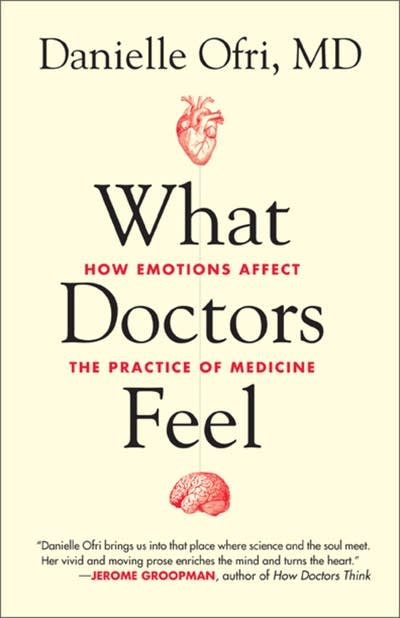Fear of humiliation leads to mistakes, doctor says
Go Deeper.
Create an account or log in to save stories.
Like this?
Thanks for liking this story! We have added it to a list of your favorite stories.

Your doctor's emotions can sometimes get in the way of treatment decisions, says a physician and author.
"Certainly our error rate is affected by our emotional state, but we often don't want to talk about that," said Dr. Danielle Ofri, author of the book "What Doctors Feel." She practices at Bellevue Hospital and teaches at New York University School of Medicine.
"I wrote a piece for the New York Times about a near-miss," Ofri recalled in an interview on The Daily Circuit. "That's an error that happened but someone else caught. The patient didn't notice it. It was fine. And because it was caught, I didn't reveal it.
"I was a young resident at the time. I missed a bleed in someone's head because I forgot to check the CAT scan. I was so haunted by my shame, so upset at myself that I couldn't bear to bring it up. I didn't bring it up to my supervisor, my team, and certainly not the patient and their family. And yet it could have been a learning experience for all of us. ... It could have helped me deal with those emotions, yet it was too difficult to bring up."
Turn Up Your Support
MPR News helps you turn down the noise and build shared understanding. Turn up your support for this public resource and keep trusted journalism accessible to all.
And after another error, as she recounted in her book, a supervisor berated her in public. The experience was deeply humiliating.
"There's a difference between guilt and shame," she said. "Guilt goes along with an event, and if you fix that and make amends, you can resolve the guilt. But shame is a very internal thing, and I think that's what happened to me.
"Suddenly I was not the doctor I thought I was. Prior to that I thought I was a reasonably competent doctor doing a good job. And suddenly in that one moment, that persona shattered to bits, and that was more than my ego could handle."
Doctors labor under a "culture of perfection," she said. "We select [medical students] for perfection ... and then we teach them perfection." There is, she said, "no room for the good-enough doctor." In that culture, fear of humiliation can stifle conversations that would be useful in avoiding future mistakes, she said.
"If you start talking to doctors and nurses, especially outside the hospital, they will start owning up to all of their errors, and we all have committed many. Which is why the topic of medical errors is so important," Ofri said. "There's a whole iceberg buried under the water of errors that don't come to light because doctors and nurses and students are afraid to talk about them. And that's really the area that we need to get to."
LEARN MORE ABOUT 'WHAT DOCTORS FEEL':
• Doctor Feelbad
It is, after all, the physician's role to ease the suffering of others. Yet as Dr. Ofri points out, how doctors feel matters. And while she does write of joy, pride and gratitude, her emphasis is on negative emotions — which exert the strongest influence on medical care, particularly when a case grows unexpectedly complicated, frustrating or unyielding. "This is where factors other than clinical competency come into play," she writes. An unwell doctor is a bad doctor. (The New York Times)




